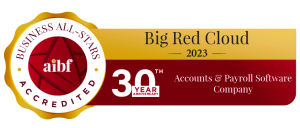Tricks of the trade
The pandemic has forced financial controllers to develop new skills as well as improving old ones. As we know, even the smallest business can avail of digital solutions such as cloud-based accounting systems and forward-thinking financial controllers have seen this as an opportunity to use data strategically and transform it into business intelligence.
The importance of cash management and financial risk management has been underlined time and again over the last 12 months. But this period has also illustrated the value of working out how businesses would be affected by a shock – even one on a smaller scale than a global pandemic – and the options available to guide them through such events.
Flexible approach vital
The coronavirus crisis has reminded us that things can change quickly in business, even during seemingly quiet periods. Financial controllers have to be prepared for change, whether that change is happening within their organisation or in the wider world.
The best finance professionals combine a growth mindset with the perspective of a business analyst. They increasingly have the ability to analyse data and use business intelligence platforms, and are focused more on predictive analysis than the more traditional descriptive analysis (in other words, the ‘why’ rather than the ‘what’).
For example, there is no reason why financial controllers cannot produce reports for decision-making purposes as well as for accounting or tax reasons, adopting a more proactive approach to anticipate business risks.
Learn to speak up
There is no point generating business insights from financial data if you are unable to convey them to the business owner. Communications skills might not be high on the list of qualities demanded of financial controllers, but they are important – especially in growing businesses where the role will involve interacting with people other than the company accountant.
This change reflects the role of the financial controller as a business advisor, using their knowledge of the financial health of the company to provide guidance and act as a sounding board for management.
There will be times when the financial controller has to act as a representative of the company and communicate how its strategy relates to its financial outlook and performance. When dealing with financial institutions it is important to build confidence and a polished presentation can go a long way.
Accept your differences
Businesses are increasingly recognising the value of workplace diversity and financial controllers have much to gain from developing diverse skills and competencies. However, this is difficult in the current climate where everyone is working from home.
Businesses that have yet to digitise their financial processes will find this particularly challenging. However, all companies need to think about how they recruit and train financial staff to make sure these individuals are comfortable with technology.
On this subject, accounts systems should also be reviewed on a regular basis. Transitioning to a cloud-based accounting solution such as Big Red Cloud will streamline the management of receivables and payables and enable financial controllers to focus on helping business owners increase efficiency.





